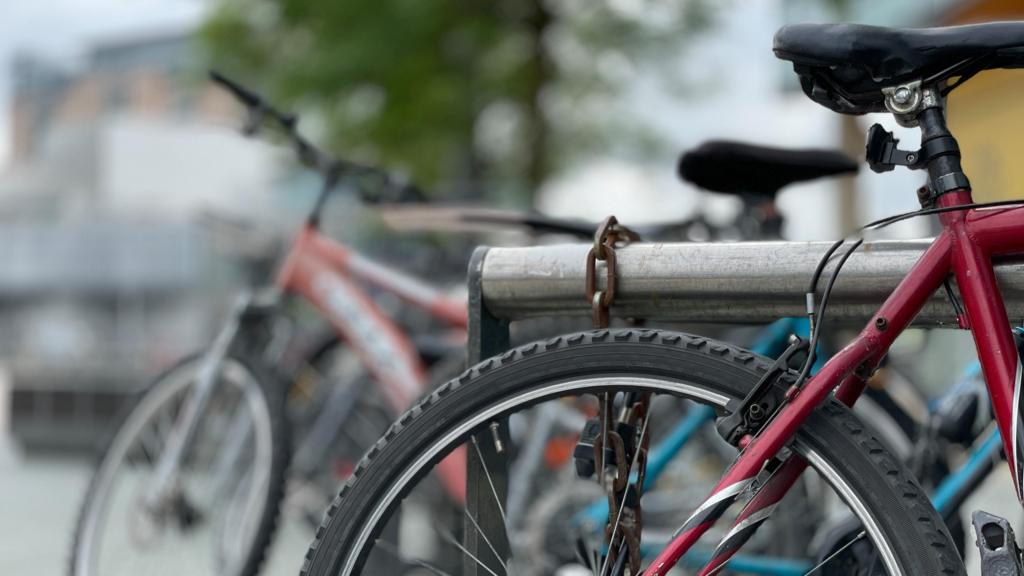The Liberal Democrats are advocating for the establishment of a dedicated “bike bait” unit within the National Crime Agency (NCA) to combat the rising issue of bicycle theft.
The party suggests that this specialized team would collaborate with local police forces, deploying bicycles equipped with tracking devices in areas identified as theft hotspots. This strategy aims to enable officers to effectively trace thieves and gather crucial evidence concerning broader criminal networks involved in such activities.
The proposal is supported by data from the Home Office, which reveals that a staggering 86% of reported bicycle thefts across England and Wales remained unsolved between March 2024 and March 2025.
A spokesperson for the Home Office has responded by stating that the government’s plan to introduce 3,000 new neighbourhood police officers will contribute significantly to preventing bike thefts, acknowledging that perpetrators have evaded justice “for far too long.”
Max Wilkinson, the Lib Dem Home Affairs spokesman, emphasized the urgency of the situation, stating, “Every single day, thousands of victims are denied the justice they deserve… the government cannot afford to dither and delay, they must crack down on unsolved crimes.”
The Home Office data further indicates that in nearly two-thirds of police forces, over 80% of bike theft cases remain unresolved. Alarmingly, this figure exceeds 90% for the British Transport Police, the Metropolitan Police, and Sussex Police.
The Lib Dems propose that the NCA’s involvement in “bait” operations would not only aid in recovering stolen bikes but also help “build a national picture of bike theft,” thereby informing more effective preventative strategies.
Past instances of police forces employing similar tactics have demonstrated success in recovering stolen bicycles and securing convictions against offenders.
For example, in 2024, ITV News reported on a City of London Police operation where officers tracked a bait bike to a warehouse containing approximately £130,000 worth of stolen bicycles.
Following the arrests made in connection with this operation, bicycle thefts in the area experienced a substantial 90% reduction within three months.
In 2012, police in Cambridge established a fictitious second-hand bike shop to recover stolen bicycles, resulting in a 25% decrease in thefts and the conviction of 20 individuals involved in bike theft.
Duncan Dollimore, Head of Campaigns at Cycling UK, voiced his support for the proposal, stating, “The idea to target bike theft and the wider criminal networks that treat it like a business is a strong one.”
He further added, “With so many stolen bikes being re-sold through online platforms, we know full well that targeting these groups can significantly reduce theft.”
Earlier this month, the British Transport Police announced that it would no longer investigate bike thefts occurring outside stations if the bicycle had been left unattended for more than two hours.
This decision has been met with criticism, with some accusing the police force of effectively “decriminalising” bike theft.
In response, the BTP stated: “The more time our officers spend reviewing CCTV… the less time they have available for patrolling railway stations and trains, investigating crimes which cause the most harm.”
The Home Office spokesperson reiterated the government’s commitment to addressing the issue, stating: “For far too long bike thieves have brazenly got away with their crimes.”
“We are committed to ensuring victims feel safe in the knowledge their bikes are safe, but also that perpetrators of these crimes will be found and brought to justice.”
The Lib Dems also secured victories in three borough and district council ward by-elections within the county.
Sir Ed Davey’s visit to Berkshire involved constructing a raft, a stunt used to critique Thames Water.
In addition to accusations against Ed Davey, Inigo Rowland faces charges related to possessing a flick-knife.
Sir Ed Davey maintains that the Bank of England’s independence is “the best way” to alleviate financial burdens.
Analysis indicates a 49% decline in party membership since August 2020.

